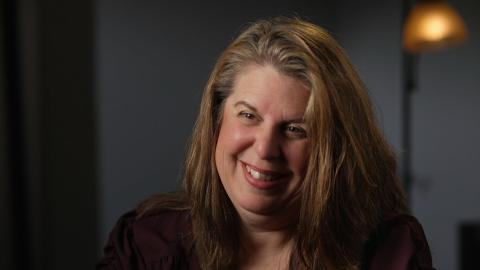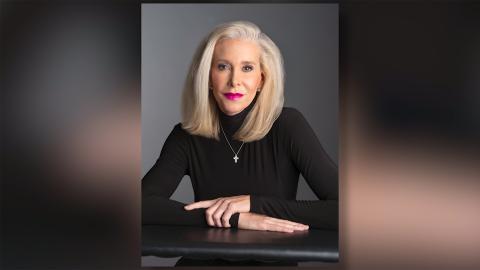Walking Through Life’s Losses to Beginning Again
THE ART OF OVERCOMING
At just 40 years of age, Tim has been pastoring a church for 19 years, following in the footsteps of both his beloved father and mother, and his paternal grandfather. His own dad’s unexpected death in 2002 – the day after Tim’s 18th birthday – was a devastating blow. Three years later, Tim joined his mother as co-pastor of Christian Faith Center near Raleigh, NC, where she and his dad had pastored for years.
Since that time, he’s walked with his congregants through many valleys of the shadow of death, learned a lot about suffering, and now wants to help others process grief and loss of all kinds. “The Art of Overcoming,” Tim says, "is primarily about dealing with loss, grief, and hurt. It’s about refusing to allow the things that look like endings to discourage or derail you, and instead, letting God turn them into beginnings. Overcoming is not about understanding everything or living without any pain, but about finding ways to process in a healthy way the strange, scary, and sometimes devastating circumstances you go through. It’s about coming out better on the other side, which probably won’t happen the same way twice. That’s why it’s an art.”
CONTRADICTION
Painful circumstances, Tim points out, are an inevitable part of life in this fallen world, but they can appear to be a contradiction of the goodness of God. He certainly felt that way when his father died. “I hated God more often than I loved Him during those first few months. I resented Him more often than I trusted Him.”
In time, Tim worked through his grief and anger and says he learned that even his beloved father’s death couldn’t destroy his family or their faith. “Why? Because God was, is, and always will be faithful to bring life out of death. He did it for my father by taking him to heaven. He did it for my family by being a Father to the fatherless. He did it for me by leading me into a deeper relationship with him. Death led me to new life, as death always does.”
CONFRONTATION
Tim believes we must face the losses in our lives head-on, recognizing and accepting that which has “died.” He highlights six categories of such losses. A few are:
• People: Whether by physical death or the end of any meaningful relationship. Tim says we need to recognize both the good and the bad of the relationship, not to remain a victim, to choose to forgive, and, if needed, to seek professional help.
• Dreams: “If it’s the wrong dream, let it go,” Tim advises, meaning, the dream could be selfish, misguided, impossible, harmful, outside our wheelhouses, or not even what we truly want. He also says we should not find our security or confidence in a dream.
• Security: We all place our security in things we shouldn’t at times, Tim says, such as money, family, or abilities. He reminds us that only the Lord can provide the security we need and crave, and to look for that in His word, His church, and fellowship with other believers.
COMMEMORATION
Just as a eulogy at a funeral commemorates what was good in a person who, like all of us, was a mix of good and bad, so too, Tim believes, we must learn how to reflect on our losses and disappointments with a healthy perspective. He says we need to sit with our loss in all of its messiness and emotion and give ourselves space to process our new reality. While we experience pain, Tim believes we will also find the grace of God bringing hope in heartbreak and faith through the storm.
Nothing is a waste in our grief, he says. “Don’t be too quick to write things off as tragic, horrible mistakes. Just because something died doesn’t mean it never should have lived. And just because it didn’t end how you expected, doesn’t mean you did something wrong. You have to be able to hold both the good and the bad at the same time or you’ll tend to let the pain of your loss overwhelm the gifts you’ve received – or the future that remains to be written,” he advises.
Tim also reminds us of Romans 8:28, “And we know that God causes all things to work together for good to those who love God, to those who are called according to His purpose.” Out of the ashes of the past, he says, something new comes into being: new doors of opportunity, new friends, new growth, and new ideas.
RECESSIONAL
Not unlike a recessional at a funeral, which brings needed closure, Tim says, “In our death experiences – our losses, our disappointments, our pain – we need to find closure as well. We need to make peace with the past while simultaneously stepping into the future. This includes finding peace, developing gratitude, embracing hope, leaning into growth, being surprised by joy, and ultimately moving on. Without dismissing the pain of the present, we must begin to look toward the future. After all, grief and hope go hand in hand. And even in death, God brings life.”
In terms of gratitude, for example, Tim offers several ideas:
• Give thanks for the gifts you’ve received.
• Give thanks for the challenges you’ve overcome.
• Give thanks for the God you rely on.
• Give thanks for the doors you are entering.
“The sun will break through the canopy of dark clouds, the grace of God will illuminate your life, and the silver lining will mirror the gratitude in your soul,” Tim exhorts. “Good things are on their way. You can count on it.”
To purchase Tim's book, "The Art of Overcoming," and to learm more about his ministry, please visit: timtimberlake.tv.




